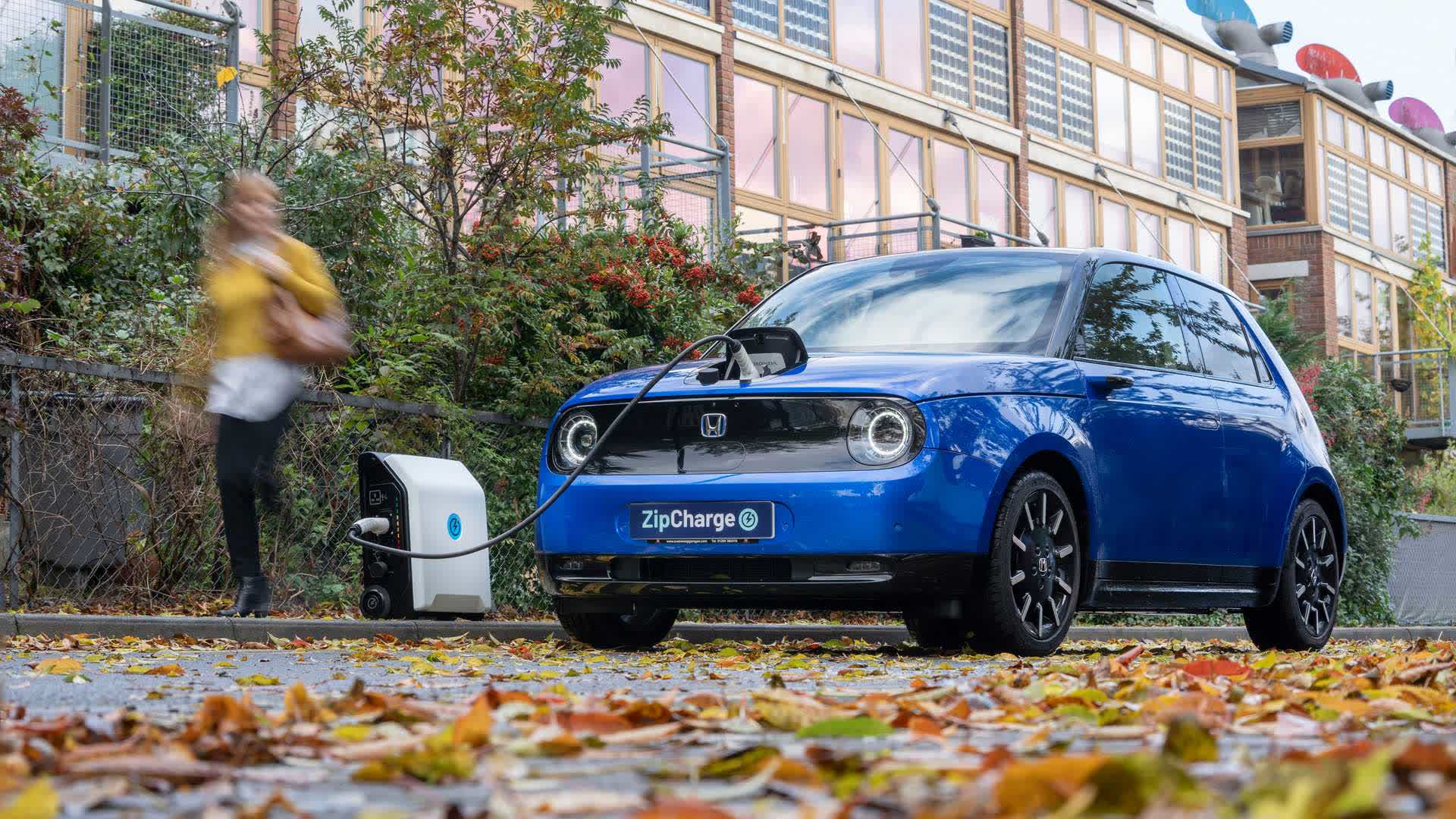Editor's take: UK startup ZipCharge has introduced a portable electric vehicle charger that could come in very handy in the right situation. I personally view this as a backup or emergency solution, but ZipCharge believes the best way to charge an EV is when you don’t need to – topping up wherever you park to avoid having to wait at a charging station later on. I'm not sure what would stop a would-be thief from helping themselves to your charger if left unattended in such a scenario, however.

The ZipCharge Go is essentially a portable battery pack like the kind you’d use for a smartphone, except it’s meant for an electric vehicle. The company describes it as a “smart charger on wheels” that’s no bigger than a compact suit case. According to InsideEVs, the Go weighs around 50 pounds.
ZipCharge says the unit is compatible with any plug-in hybrid or electric vehicle with a Type 2 socket, and can be charged from any standard household outlet. A full charge can provide 20 to 40 miles of range depending on your EV and can be delivered in 30 to 60 minutes, depending on capacity and temperature.
A companion smartphone app can be used to schedule charging at the lowest cost, provide status updates and more.
Full details are still pending but according to InsideEVs, units will be available to purchase or lease, with the latter starting around $67 per month. Look for the first examples to be available in Q4 2022.
https://www.techspot.com/news/92060-zipcharge-go-portable-powerbank-electric-vehicle.html